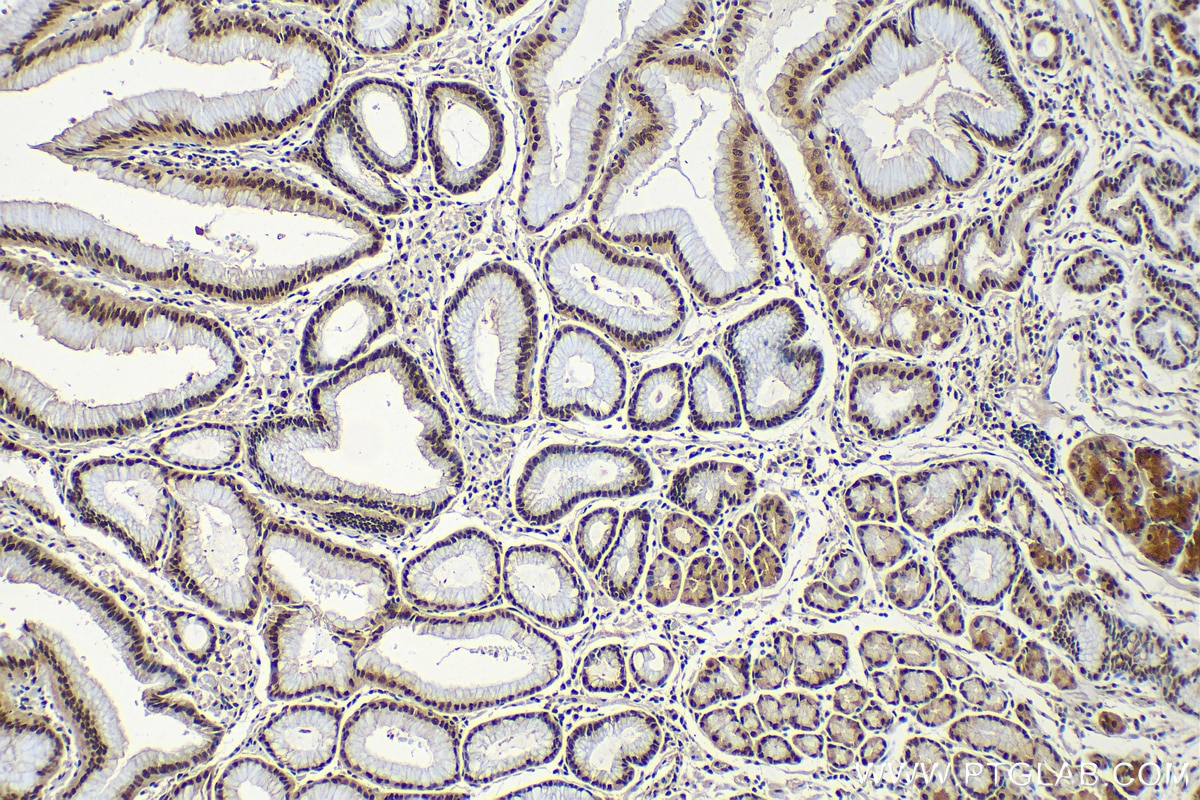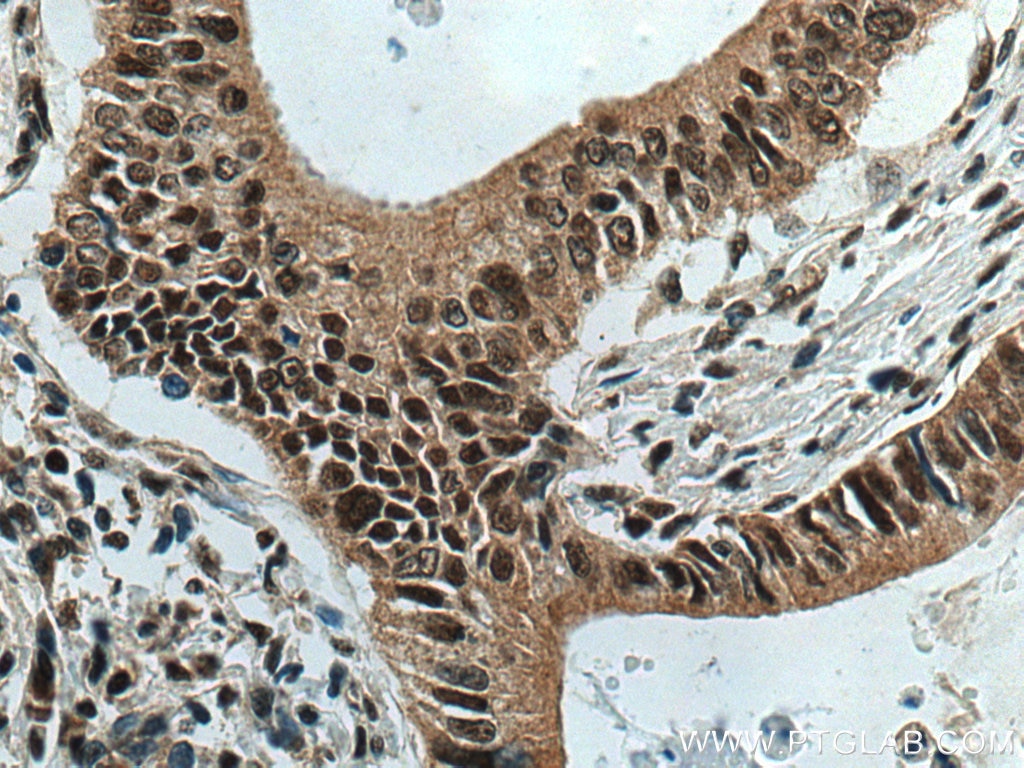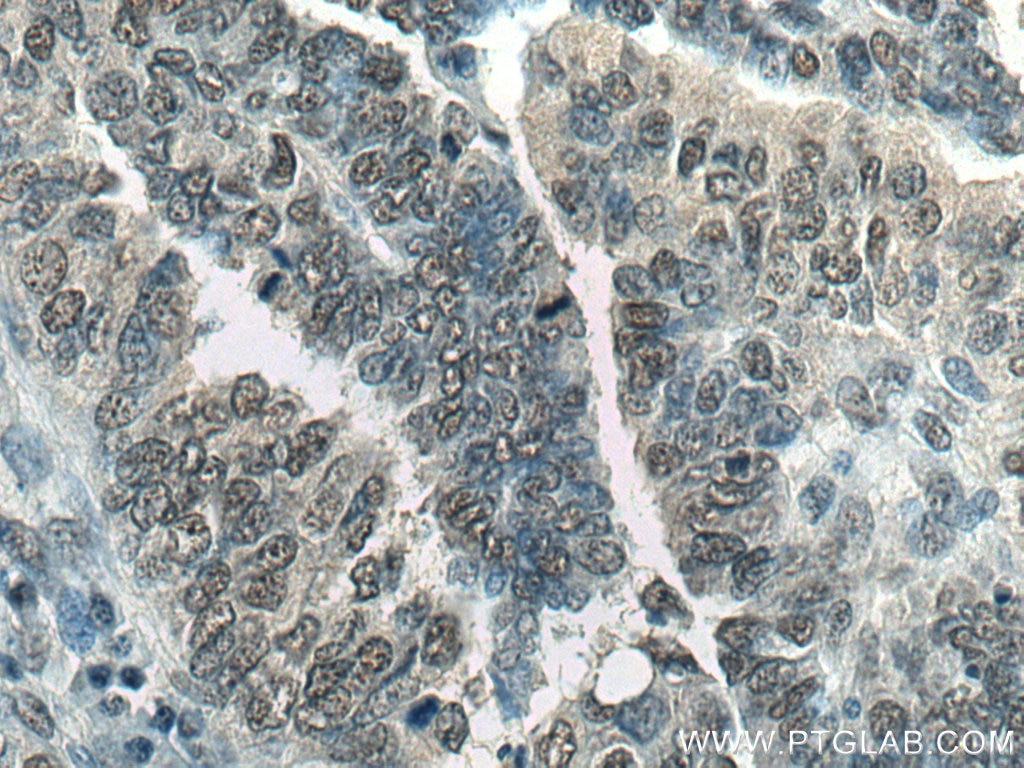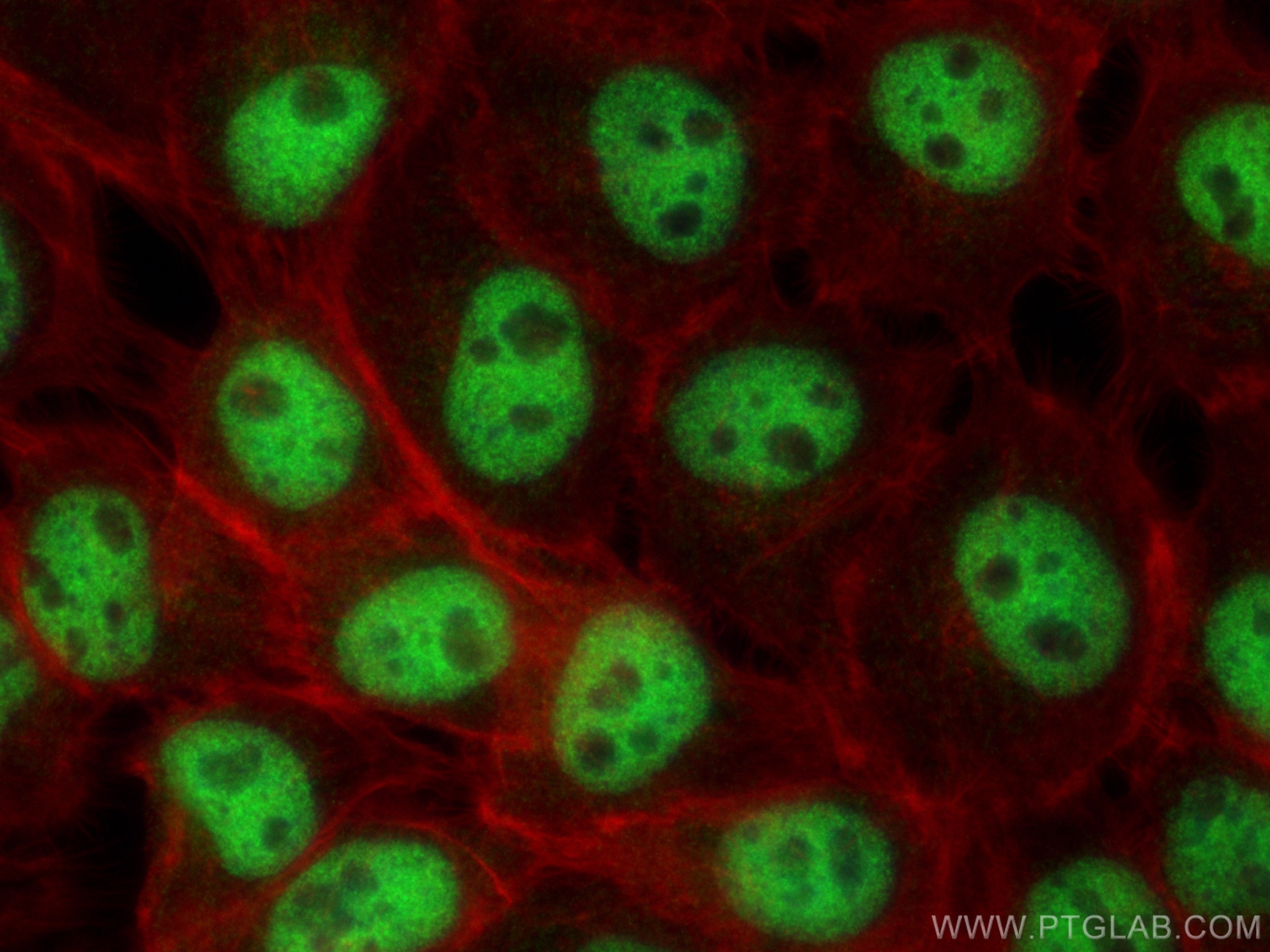DPY30 Polyclonal antibody
DPY30 Polyclonal Antibody for IHC, IF/ICC, ELISA
Host / Isotype
Rabbit / IgG
Reactivity
human, mouse, rat
Applications
WB, IHC, IF/ICC, ELISA
Conjugate
Unconjugated
Cat no : 16281-1-AP
Synonyms
Validation Data Gallery
Tested Applications
| Positive IHC detected in | human stomach cancer tissue, human ovary tumor tissue Note: suggested antigen retrieval with TE buffer pH 9.0; (*) Alternatively, antigen retrieval may be performed with citrate buffer pH 6.0 |
| Positive IF/ICC detected in | A431 cells |
Recommended dilution
| Application | Dilution |
|---|---|
| Immunohistochemistry (IHC) | IHC : 1:50-1:500 |
| Immunofluorescence (IF)/ICC | IF/ICC : 1:200-1:800 |
| It is recommended that this reagent should be titrated in each testing system to obtain optimal results. | |
| Sample-dependent, Check data in validation data gallery. | |
Published Applications
| WB | See 1 publications below |
Product Information
16281-1-AP targets DPY30 in WB, IHC, IF/ICC, ELISA applications and shows reactivity with human, mouse, rat samples.
| Tested Reactivity | human, mouse, rat |
| Cited Reactivity | human |
| Host / Isotype | Rabbit / IgG |
| Class | Polyclonal |
| Type | Antibody |
| Immunogen | DPY30 fusion protein Ag9370 相同性解析による交差性が予測される生物種 |
| Full Name | dpy-30 homolog (C. elegans) |
| Calculated molecular weight | 99 aa, 11 kDa |
| GenBank accession number | BC015970 |
| Gene symbol | DPY30 |
| Gene ID (NCBI) | 84661 |
| RRID | AB_2918044 |
| Conjugate | Unconjugated |
| Form | Liquid |
| Purification Method | Antigen affinity purification |
| Storage Buffer | PBS with 0.02% sodium azide and 50% glycerol pH 7.3. |
| Storage Conditions | Store at -20°C. Stable for one year after shipment. Aliquoting is unnecessary for -20oC storage. |
Protocols
| Product Specific Protocols | |
|---|---|
| IHC protocol for DPY30 antibody 16281-1-AP | Download protocol |
| IF protocol for DPY30 antibody 16281-1-AP | Download protocol |
| Standard Protocols | |
|---|---|
| Click here to view our Standard Protocols |
Publications
| Species | Application | Title |
|---|---|---|
PLoS Biol A novel TOX3-WDR5-ABCG2 signaling axis regulates the progression of colorectal cancer by accelerating stem-like traits and chemoresistance |





